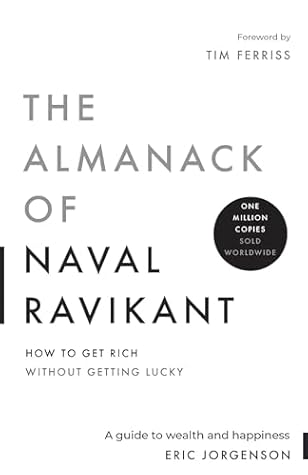More on this book
Community
Kindle Notes & Highlights
Read between
October 14 - October 16, 2025
Foundations are key. It’s much better to be at 9/10 or 10/10 on foundations than to try and get super deep into things.
Intentions don’t matter. Actions do. That’s why being ethical is hard.
When you’re dating, the instant you know this relationship is not going to be the one that leads to marriage, you should probably move on. When you’re studying something, like a geography or history class, and you realize you are never going to use the information, drop the class. It’s a waste of time. It’s a waste of your brain energy.
One form of leverage is labor—other humans working for you. It is the oldest form of leverage, and actually not a great one in the modern world. [1] I would argue this is the worst form of leverage that you could possibly use. Managing other people is incredibly messy. It requires tremendous leadership skills. You’re one short hop from a mutiny or getting eaten or torn apart by the mob. [78]
Whenever you can in life, optimize for independence rather than pay.
Because money is not going to solve all of your problems, but it’s going to solve all of your money problems.
Spend more time making the big decisions. There are basically three really big decisions you make in your early life: where you live, who you’re with, and what you do.
My definition of wisdom is knowing the long-term consequences of your actions. Wisdom applied to external problems is judgment.
The really smart thinkers are clear thinkers. They understand the basics at a very, very fundamental level. I would rather understand the basics really well than memorize all kinds of complicated concepts I can’t stitch together and can’t rederive from the basics. If you can’t rederive concepts from the basics as you need them, you’re lost. You’re just memorizing.
It’s actually really important to have empty space. If you don’t have a day or two every week in your calendar where you’re not always in meetings, and you’re not always busy, then you’re not going to be able to think.
The classical virtues are all decision-making heuristics to make one optimize for the long term rather than for the short term. [11]
I do view a lot of my goals over the next few years of unconditioning previous learned responses or habituated responses, so I can make decisions more cleanly in the moment without relying on memory or prepackaged heuristics and judgments.
The more you know, the less you diversify.
I don’t believe I have the ability to say what is going to work. Rather, I try to eliminate what’s not going to work.
If you cannot decide, the answer is no.
Simple heuristic: If you’re evenly split on a difficult decision, take the path more painful in the short term.
“I don’t want to read everything. I just want to read the 100 great books over and over again.” I think there’s a lot to that idea. It’s really more about identifying the great books for you because different books speak to different people. Then, you can really absorb those.
When solving problems: the older the problem, the older the solution. If you’re trying to learn how to drive a car or fly a plane, you should read something written in the modern age because this problem was created in the modern age and the solution is great in the modern age. If you’re talking about an old problem like how to keep your body healthy, how to stay calm and peaceful, what kinds of value systems are good, how you raise a family, and those kinds of things, the older solutions are probably better.
Don’t take yourself so seriously. You’re just a monkey with a plan.
A happy person isn’t someone who’s happy all the time.
“I don’t have time” is just another way of saying “It’s not a priority.”
The hardest thing is not doing what you want—it’s knowing what you want.
There is no endpoint to self-awareness and self-discovery. It’s a lifelong process you hopefully keep getting better and better at.


